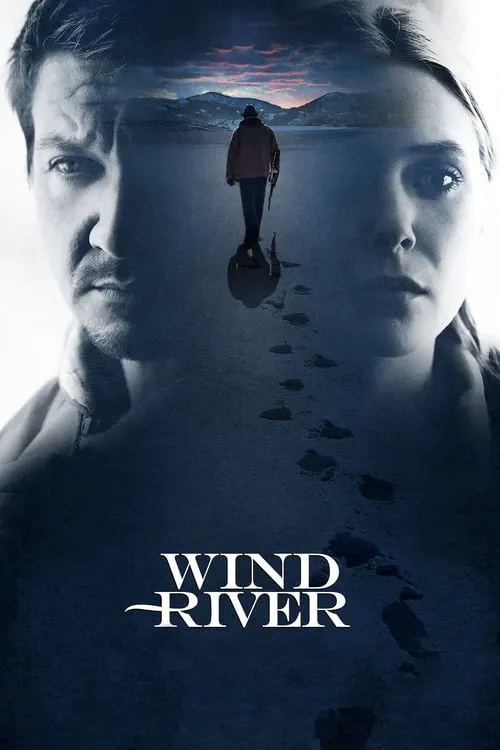Wind River

Plot
Wind River is a 2017 American neo-noir mystery thriller film directed by Taylor Sheridan. The film takes place on the Wind River Indian Reservation in Wyoming and delves into the dark history of the region. The story begins with the arrival of FBI Agent Jane Banner, played by Elizabeth Olsen, who is tasked with investigating the death of a young Native American woman, Natalie, whose body is discovered frozen in the snowy wilderness of the reservation. The local sheriff, Hastings, asks the assistance of Cory Lambert, a skilled game tracker and hunter, played by Benicio del Toro, to help Agent Banner solve the case. As the investigation unfolds, it becomes clear that Natalie's death is not as straightforward as it initially seems. The sheriff's investigation and Agent Banner's arrival stir up a complex web of tensions and prejudices within the small community. The locals, mostly Native Americans, struggle to accept the involvement of the FBI, feeling that their concerns and experiences have often been dismissed by the authorities. Cory Lambert, a Ute Native American, has his own connection to the Wind River land and its people. His story begins years ago when he was tasked with hunting down and killing a mountain lion that had been terrorizing the community, but the experience of taking a life, even one as necessary as a harmful predator, has left a lasting impact on him. His emotions are still raw, and he struggles to connect with the people around him, a sense of loss and isolation visible beneath his stoic exterior. As Agent Banner navigates the complexities of Native American culture and the Wind River community, she quickly realizes that solving the case is going to be more difficult than she had anticipated. The residents of the reservation, including Cory, have reasons to believe that Natalie's death is just one part of a larger, more sinister issue. The community knows about its painful past of losing native identity, traditions, and especially lives, both due to internal family and community troubles, and external pressures from mainly U.S. institutions and colonialism. Working together, Agent Banner and Cory begin to piece together the events surrounding Natalie's death. They uncover small, telling details that hint at a deeper, darker truth. Their findings are eventually disrupted, forcing them to re-evaluate the scope of the original case, and the much larger issue at play. A complex relationship evolves between Agent Banner, Cory, and other characters, setting out a mutual respect for the other's resolve, understanding, and resilience. As Agent Banner and Cory delve deeper into the Wind River world, they uncover long-forgotten historical traumas such as gaslighting, the use of religious or alcohol abuse as a tool to further mission or goals, and continued dehumanization of Native American lives. They also bring up some Native American spirituality and rituals aimed at maintaining connections to earth. In discussing the tension and difficulties that the two must deal with whilst still working on the murder investigation, they voice many of the injustices faced by the Native American people. Lindsey, in the film, then alludes to two types of struggle the Native Americans face from their perspective. For example, the loss of a sense of identity, an identity expressed under traditional sacred lands upon visiting and settling in cities; and of a particular life in urban areas while trying "fit into mainstream." Therefore their lives must often navigate a sense of non-pertinence, self-acceptance while existing amidst non-Native social communities, while reflecting "values based on traditional, life-sustaining forms of agriculture, as distinct from productive urban economics of wage and work." The interactions between Agent Banner and Cory unfold in an intimately complex way, revealing the difficult relationship between each other's family histories, with painful glimpses of personal tragedies each struggle quietly. Through his interactions with Agent Banner, we witness Cory overcome his inner turmoil and learn to confront his own history while opening up his entire heart and understanding to such painful life-experiences faced by others.
Reviews
Christopher
Tyler Sheridan’s “American Frontier Trilogy” all carry grand themes, exploring the drug trade on the US-Mexico border, the subprime mortgage crisis in Texas, and the marginalized minorities of the Indian reservations. However, beneath these grand themes lies a small core: a failed father.
Payton
Brutally heartbreaking, intensely suffocating, and ultimately cathartic.
Recommendations




